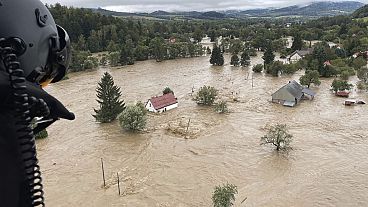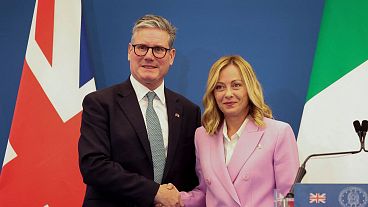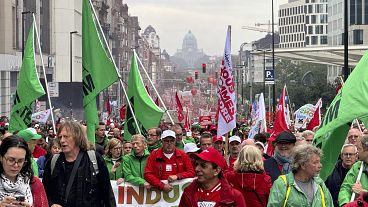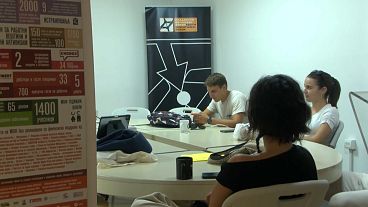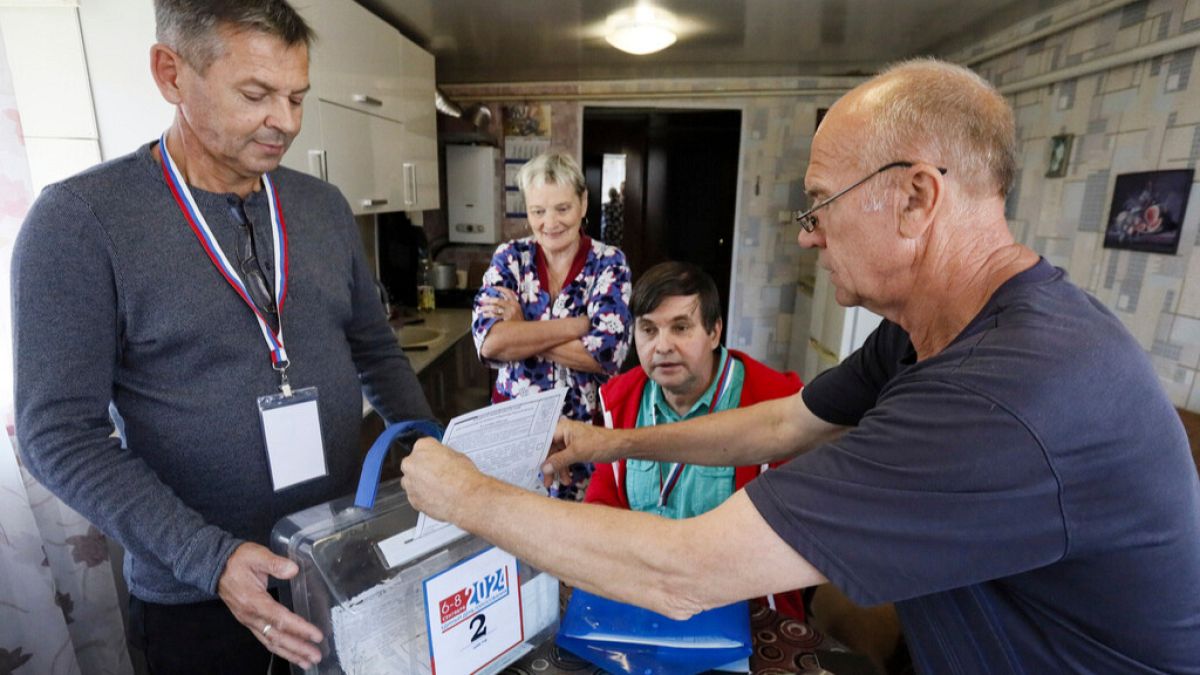Up to 83 elections were held throughout Russia and occupied Ukrainian territory over the weekend, with the results — strongly titled towards Moscow-approved candidates — expected to roll in by the end of September.
The EU's diplomatic agency has strongly condemned Russia's regional elections held in occupied Crimean territory, stating the vote violates international law, the UN Charter and Ukraine's sovereignty.
"The EU does not recognise these so-called 'elections' or their results in Crimea," the European Union External Action Service (EEAS) said in a statement on Monday. "They are null and void, and cannot produce any legal effects whatsoever."
"More than a decade after Russia's invasion and attempted illegal annexation of Crimea, the EU reiterates its position: Crimea is Ukraine," the agency said.
Roughly 83 regional and municipal elections were held throughout Russia — including the capital of Moscow as well as the Ukrainian-controlled territory of Kursk — from 6-8 September.
After a surprise incursion last month, Ukrainian armed forces now control 1,300 square kilometres of Russia's border Kursk region.
There are three by-elections for the central Moscow state of Duma; 19 elections for governors (16 direct and three indirectly elected); 13 regional parliamentary elections; and many municipal elections.
According to the Central Electoral Commission (CEC), it blocked "thousands" of attacks on voting resources.
The agency reported the highest voter turnout was seen in the Republic of Bashkortostan (55%), followed by the Kemerovo regions (60%) and Kursk (50%).
Despite earlier media reports suggesting Kursk voting would be delayed, citizens cast their ballots at the scheduled time. According to the the Central Election Commission chief Ella Pamfilova, residents requested the voting timeline not be adjusted.
Pamfilova — who was appointed to the position in 2016 under the banner of making Russian elections free and fair — attributed the region's high voter turnout to an "adequate response" to the "bandits and rabble" currently besieging Kursk.
Kremlin-backed candidates are expected to win many of the legislative assembly posts and local official positions, Russian media reports. International news outlets state many opposition candidates have been blocked from completing their candidacy applications.
The confirmed results are expected to be released by the end of September.
'Strongman' politicians on the rise, UN warns
Meanwhile, the United Nations (UN) Commissioner for Human Rights Volker Türk told attendees of the 57th session of the Human Rights Council in Geneva that "strongman" politicians and personalities are on the rise, and to be wary.
Türk did not mention countries by name but alluded to a schedule that features election cycles in Georgia, Tunisia and the US.
"I urge voters to ask themselves which of the political platforms or candidates will work for the human rights of everyone," Türk said.
"And I urge all voters to be vigilant. Be wary of the shrill voices, the 'strongman' types that throw glitter in our eyes, offering illusory solutions that deny reality," he added.
The human rights chief made mention of Ukraine and Russia, stating that his office was disappointed when it was refused entry by Moscow to inspect the territory.
"Troubled by the impact of recent escalations on civilians, including in Kursk, my office has pursued access to all affected areas to be able to monitor the human rights situation," he said.
"I regret the Russian Federation has so far declined to grant such access to relevant areas," he added.

